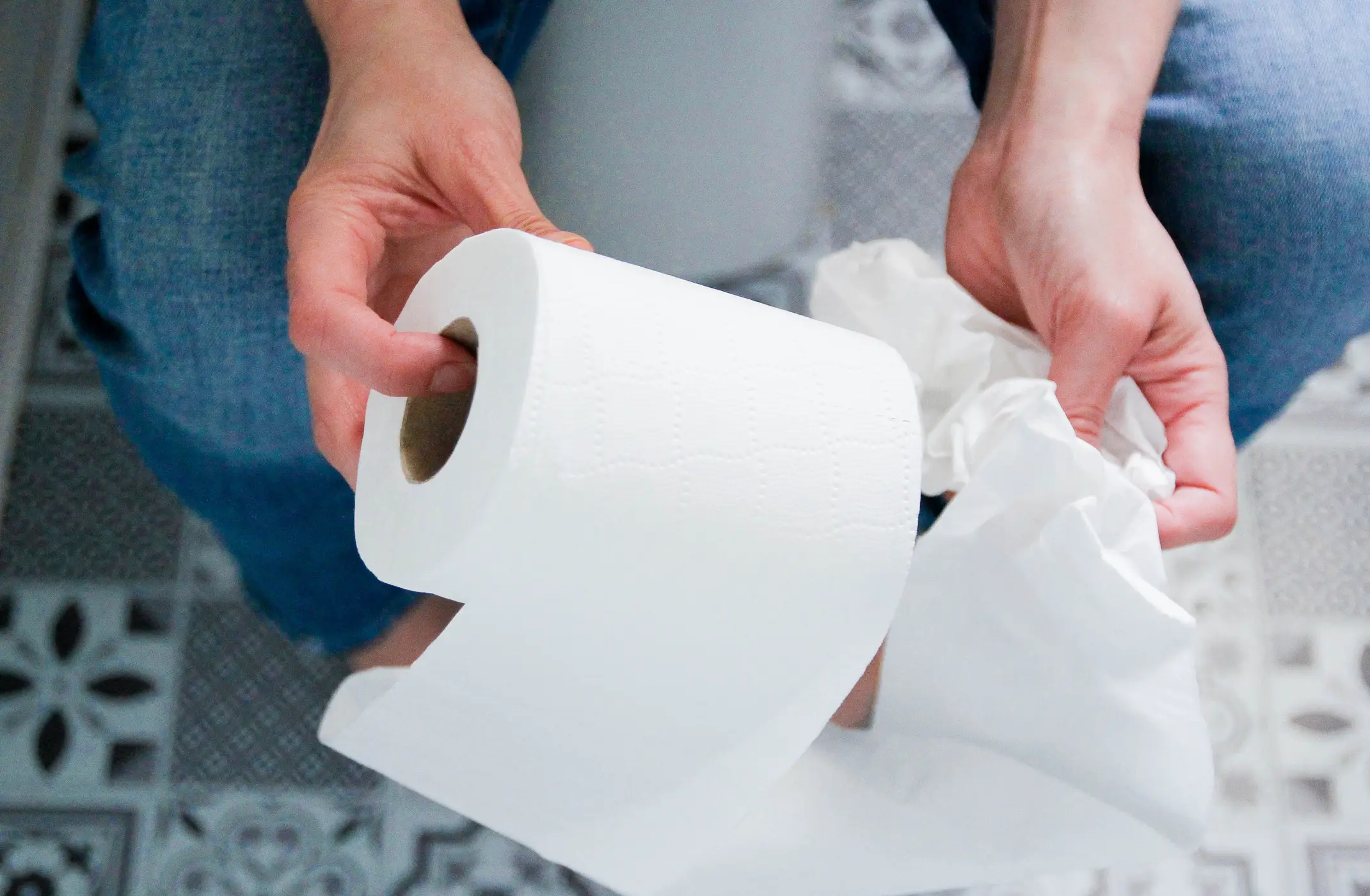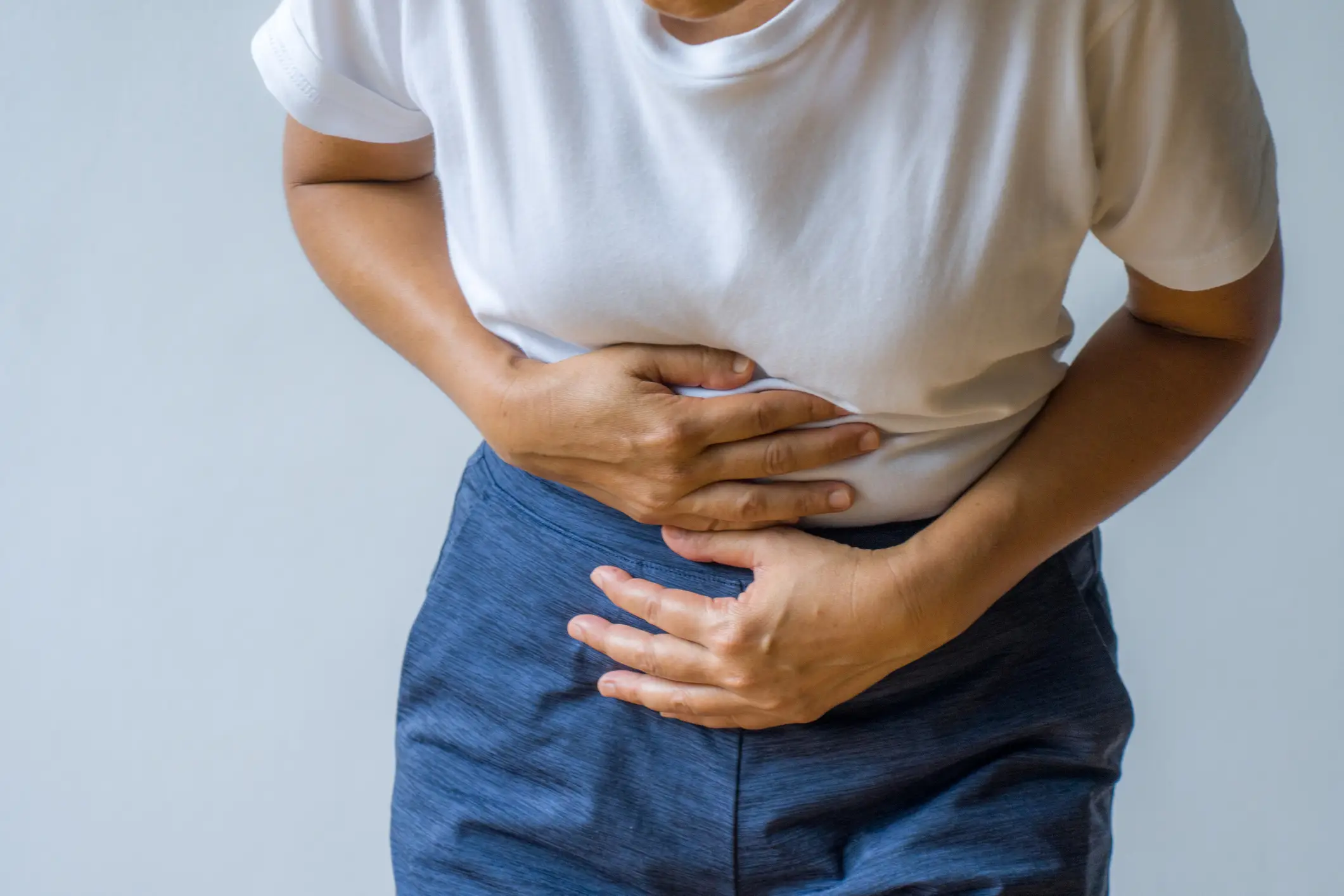
A woman is raising awareness of the symptoms she 'brushed off' for 'years' before being diagnosed with colon cancer.
It can be easy to fall down the rabbit hole of googling symptoms, catastrophizing and self-diagnosing yourself with some rogue disease.
However, it can also be easy to spot small symptoms and dismiss them, reassuring yourself it was a one off, is nothing to worry about and because you're feeling fit and healthy, you're fine.
However, a woman named Crystal who ended up with a 'shock' diagnosis of colon cancer in 2022 has since opened up about when she 'first noticed something was off' but why it took 'years of ignoring the symptoms' before she was finally diagnosed.
Advert
In an interview with The Patient Story, Crystal explained she 'started to notice there was blood in [her] stool' (poo) in 2012 - a whole decade before her diagnosis.
"It would last for a couple of days," she continued. "And so I would google it and it would say it could be anything from haemorrhoids to colon cancer.
"There were so many things it could be but naturally, I'm just like, 'Well, I don't have cancer, so it's probably haemorrhoids or something.'"
Crystal recalls the blood would stop appearing 'after a couple of days' and so ultimately she 'just kind of let it go'.
But a few years ago, she decided to go to a doctor.

The doctor scheduled a colonoscopy for Crystal - a colonoscopy 'an examination of the inside of your large intestine (colon),' Cleveland Clinic explains.
"It’s helpful for diagnosing gastrointestinal diseases, such as inflammatory bowel disease and colon cancer. It can also help treat and prevent colon cancer. Healthcare providers recommend routine colonoscopies for middle-aged and older adults to screen for cancer," it states.
However, after getting 'really sick' from drinking the liquid you need to consume prior to the colonoscopy, Crystal didn't end up going through with the examination.
"And I didn't reschedule. I didn't go back," she continued. "And then as the years went on, it became easier to just kind of ignore."
Crystal explained the blood in her stools would 'come back' but then 'go away' - the fluctuation making it easier for her to dismiss the symptom.
But in 2022, she started experiencing 'really excruciating pain' in her lower abdomen.

She described it as being 'almost like a menstrual cramp but way worse'.
Crystal rushed herself to urgent care, but ultimately after the pain went away after several days, she left.
However, when she began experiencing abnormal UTIs - her urine a 'really disgusting smell' - she got antibiotics, but the UTIs returned weeks later - this going on for around two to three months.
When the antibiotics continued to not work, Crystal underwent a CAT scan and was called straight back so doctors could do a scope of her bladder - doctors noticing something 'intruding into it'.
After being sent to a bigger hospital, Crystal had further scans alongside finally getting a colonoscopy and was ultimately diagnosed with colon cancer.
Crystal went through multiple surgeries, chemotherapy and lost her bladder too.
Despite the trauma of the experience, she reflects it forced her to 'let people in', advising anyone else in a similar position to do the same.
She said: "That's the only thing that got me through it."
If you’ve been affected by any of these issues and want to speak to someone in confidence, contact the American Cancer Society on 1-800-227-2345 or via their live chat feature, available 24/7 every day of the year.
Topics: Cancer, Health, Mental Health, Social Media, US News, YouTube, Colon cancer